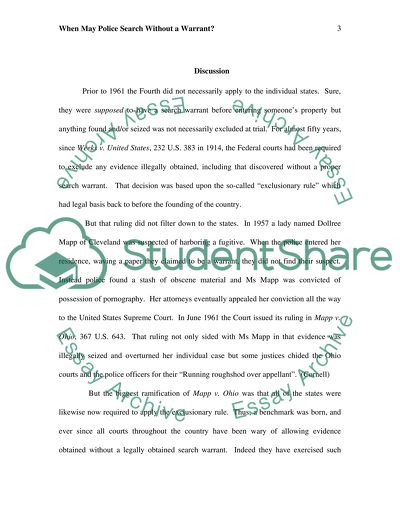Cite this document
(“When May Police Search without a Warrant Research Paper”, n.d.)
When May Police Search without a Warrant Research Paper. Retrieved from https://studentshare.org/law/1431924-when-may-police-search-without-a-warrant-what-are
When May Police Search without a Warrant Research Paper. Retrieved from https://studentshare.org/law/1431924-when-may-police-search-without-a-warrant-what-are
(When May Police Search Without a Warrant Research Paper)
When May Police Search Without a Warrant Research Paper. https://studentshare.org/law/1431924-when-may-police-search-without-a-warrant-what-are.
When May Police Search Without a Warrant Research Paper. https://studentshare.org/law/1431924-when-may-police-search-without-a-warrant-what-are.
“When May Police Search Without a Warrant Research Paper”, n.d. https://studentshare.org/law/1431924-when-may-police-search-without-a-warrant-what-are.


